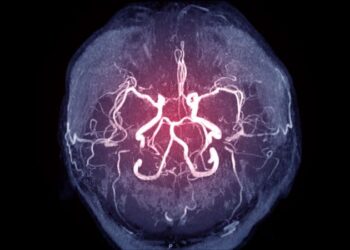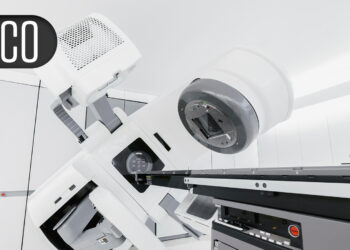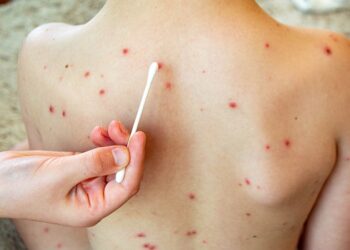TOPLINE:
In patients with breast cancer, a 3-week moderately hypofractionated radiation therapy regimen resulted in lower rates of grade ≥ 2 adverse events (AEs) overall than conventional 5-week treatment, according to the first results from the phase 3 UNICANCER HypoG-01 trial.
METHODOLOGY:
- While hypofractionated radiotherapy is widely accepted for treating breast cancer, its role in nodal irradiation remains uncertain.
- Researchers conducted a randomized, multicenter, noninferiority phase 3 trial involving 1265 women aged 18 years or older who underwent complete surgery for invasive breast cancer (T1-3, N0-3, M0).
- Patients were randomly assigned to receive either 3-week (40 Gy/15 fractions) or 5-week radiotherapy (50 Gy/5 fractions) with or without tumor bed boost.
- The current analysis reported the cumulative incidence of early AEs of grade ≥ 2 over a follow-up period of up to 6 months (further analysis of cancer-related endpoints will be reported later). Competing risk analyses were also performed to estimate the cumulative incidence of early toxicities with treatment discontinuation or an invasive disease-free survival event considered competing risks.
- The intention-to-treat population included 1260 patients (median age, 58 years), with 631 in the 3-week and 629 in the 5-week radiotherapy group.
TAKEAWAY:
- In the overall population, 88 (7%) grade 3, 1 grade 4, and no grade 5 AEs were observed. A total of 27 serious AEs — 16 in the 3-week group and 11 in the 5-week group — were reported among 23 patients, but only three AEs were considered related to radiotherapy.
- The incidence of maximum grade ≥ 2 AEs was lower in the hypofractionated group — 45% of patients who received 3-week radiotherapy vs 51.8% in those who received 5-week therapy.
- The most common toxicities were dermatitis, fatigue, and pain for both groups, but those in the 3-week group fared numerically better, both in rates of AEs and in the competing risk analysis. Grade ≥ 2 dermatitis was more frequent in patients who received a tumor bed boost vs those who did not (20.5% vs 9.1% with the 3-week and 46.4% vs 17% with the 5-week regime) and in those with a body mass index > 30 (24.6% for the 3-week group vs 42.4% for the 5-week group).
- The cumulative incidence of grade ≥ 2 respiratory disorders was 2.1% in both the groups, with dyspnea and cough being the main symptoms. The incidence of grade ≥ 2 cardiac disorders was below 1% for both, though lower for the standard treatment group (0.63% for the 3-week group vs 0.16% for the 5-week group).
IN PRACTICE:
The analysis showed that the 3-week moderately hypofractionated regimen “do not raise safety concerns” in women receiving locoregional radiotherapy, but “further long-term outcomes are awaited,” the authors wrote.
SOURCE:
This study, led by Thomas Brion, Radiotherapy Department, Institut Gustave Roussy, Villejuif, France, was published online in Radiotherapy and Oncology.
LIMITATIONS:
Study limitations included a lack of blinding for evaluators and patients, the use of varied treatment modalities, and the absence of systematic weekly assessments during radiotherapy, which could have led to an underestimation of some AEs.
DISCLOSURES:
The UNICANCER HypoG-01 trial was funded by the French National Cancer Institute. Two authors reported ties with various industries, including Graegis Pharmaceuticals, Pfizer, Eisai, Lilly, and Roche.
This article was created using several editorial tools, including AI, as part of the process. Human editors reviewed this content before publication.
Source link : https://www.medscape.com/viewarticle/shorter-radiotherapy-fewer-toxicities-breast-cancer-2025a100071e?src=rss
Author :
Publish date : 2025-03-25 10:58:00
Copyright for syndicated content belongs to the linked Source.














